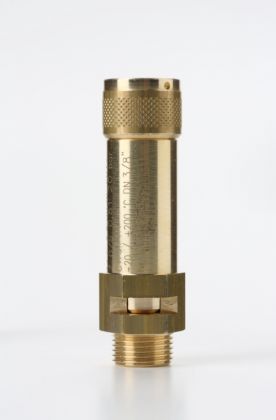
Safety Valve model D7 (PN 60)
DN8 (1/4") - DN10 (3/8") | Orifice 7mm
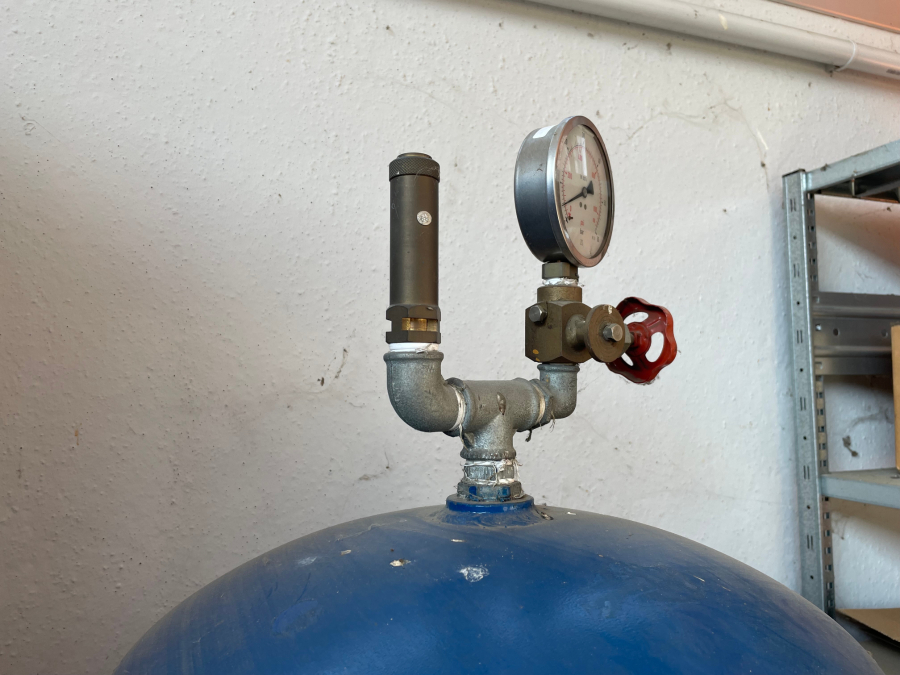
In the compressor industry, ensuring the reliability and compliance of safety valves (PSV) throughout the entire lifecycle of the system is a key challenge. End users typically perform pre-startup checks and subsequent periodic inspections, as required by local regulations.
These inspections are essential to confirm that safety valves respond correctly to overpressure, maintaining optimal protection even after repeated operations. Therefore, it is crucial to design valves using durable materials and advanced technical solutions that preserve their integrity and functionality over time, minimizing the risk of malfunctions or leaks that could compromise safety and efficiency.
Compressors are often exposed to vibrations, which, when combined with working pressures close to the valve set point, could trigger unintended valve activations during normal operation. For this reason, it is essential to select safety valves specifically designed to ensure reliability and performance in challenging environments, such as those characterized by high vibration levels and elevated pressures.
Safety valves are strategically installed in compression systems to protect the equipment from overpressure risks.
At the compressor outlet, these valves play a crucial role in preventing excessive pressure buildup that could occur due to malfunctions or sudden fluctuations in the system. This preventive action protects the compressor and piping, reducing the risk of mechanical failures and equipment damage.
Additionally, safety valves are installed on storage tanks, where they continuously monitor and regulate internal pressure. If the pressure exceeds safe limits, the valve automatically releases excess air, preventing structural damage or even the risk of explosions.
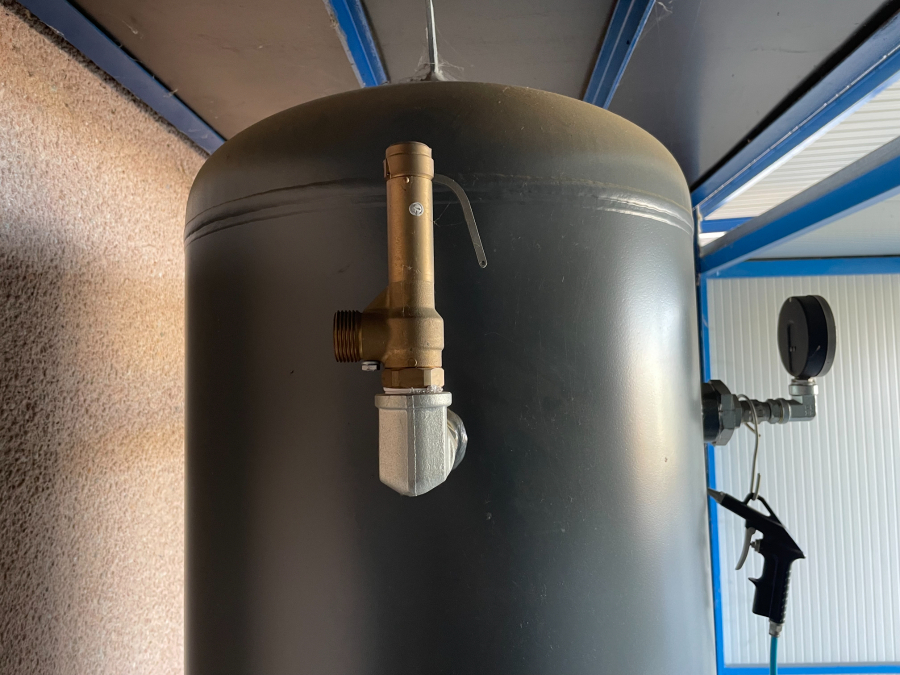
The repeated opening and closing of safety valves, even for short periods, accelerate the wear of seals and contact surfaces, reducing their lifespan and reliability over time. This can compromise the sealing, increasing the need for maintenance interventions and the risk of failure. If the PSV does not respond correctly in the case of overpressure, actuator damage may occur and, in extreme scenarios, increase the risk of explosions.
To ensure reliable operation over time, we use high-performance soft seals, designed to ensure an airtight closure even after each valve activation. This minimizes the risk of leaks, ensuring plant safety.
The specific design of our seals not only improves valve sealing but also provides increased resistance to particulates and impurities in the process fluid. This allows our valves to maintain stable performance over time, reducing the need for maintenance interventions and providing long-lasting protection for plants.
In compression systems, compressors and storage tanks are constantly in operation, making it difficult to perform routine maintenance on safety valves. Disassembling and servicing a valve requires plant shutdown, a procedure often complicated or costly as it would interrupt system operation and impact production.
National standards regulates the installation, operation, and periodic verification of pressure devices, including safety valves on compressors and tanks. The NoBo establishes that safety valves must be tested and verified at regular intervals (usually every 3 years) to ensure correct operation and compliance with safety requirements. However, as these plants operate continuously, scheduling revisions without halting production is a challenge. If a safety valve is not regularly certified and tested, the plant may become non-compliant with regulations, risking fines and, in more severe cases, suspension of operations. Companies must therefore find solutions that allow them to comply with regulations without compromising production efficiency.
To reduce plant downtime and ensure regulatory compliance, we offer safety valve recertification and regeneration services, ensuring they remain certified according to applicable safety standards.
To maintain operational continuity without interruption, we support our customers in managing spare valves. This system involves purchasing two identical valves (e.g., valve A and valve B). While valve A is installed in the plant, valve B is sent to us for recertification and retesting before the periodic inspection. During the inspection, the customer can quickly replace valve A with valve B, ensuring that a certified valve is always in operation without any machine downtime.
Additionally, our valves can be certified with complete documentation attesting to their compliance. This ensures that during plant inspections, the valve will already be tested, certified, and accompanied with certificates, simplifying the inspection process and ensuring maximum safety.
When operating pressure approaches the set pressure of the safety valve, even small variations can lead to undesired discharges. This can cause:
To prevent undesired activation of the safety valve, we set the calibration with a positive margin, adjusting the PSV activation to +3% above the nominal set pressure. This solution, compliant with ISO 4126, ASME, and PED standards, offers a dual advantage:
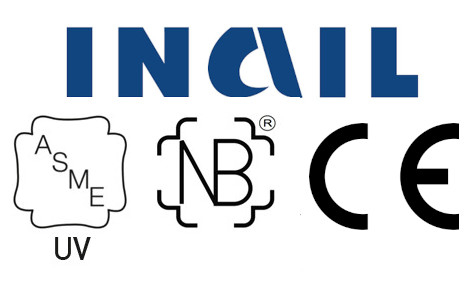
The plants in Italy often require certification by a third-party entity, such as INAIL, to comply with current regulations. In particular, safety valves and pressure equipment must be certified and periodically tested to ensure operational safety, regulatory compliance, and proper system functionality, minimizing the risk of accidents.
Plants located in Europe or following European standards must comply with CE regulations, specifically the PED (Pressure Equipment Directive) for pressure equipment and the applicable process piping standards. This ensures operational safety, structural integrity, and compliance with high European quality standards.
For plants in North America and global projects following U.S. standards, such as those in the Middle East, compliance with ASME regulations is required, particularly ASME VIII/ASME XIII for pressure equipment and ASME B31.3 for process piping. These standards ensure structural integrity and operational safety of the equipment.

DN8 (1/4") - DN10 (3/8") | Orifice 7mm
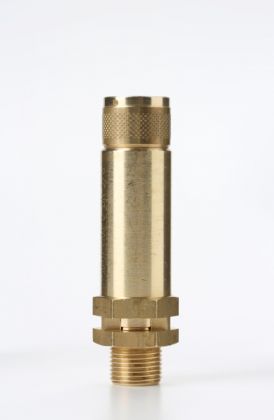
DN10 (3/8") - DN15 (1/2") | Orifice 10mm
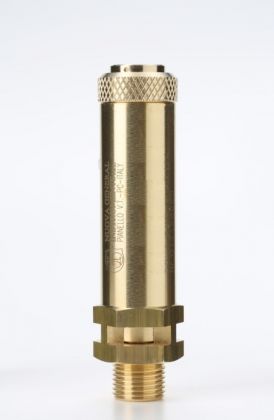
DN15 (1/2") - DN20 (3/4") | Orifice 14mm
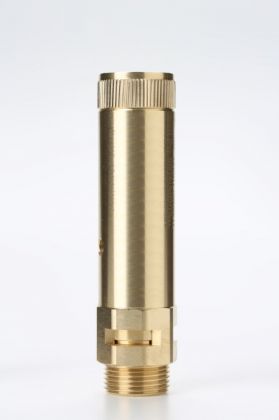
DN20 (3/4") - DN25 (1") | Orifice 20mm
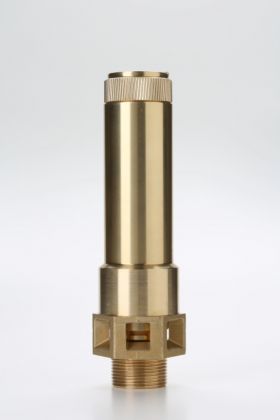
DN32 (1"1/4) - DN40 (1"1/2) | Orifice 25mm
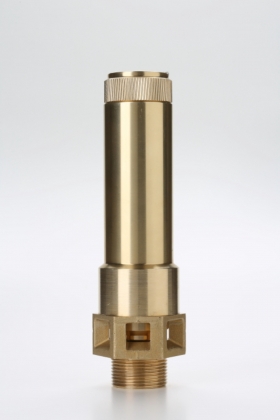
DN40 (1"1/2) | Orifice 32mm
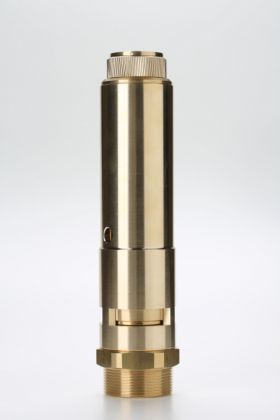
DN40 (1"1/2) - DN50 (2") | Orifice 38mm
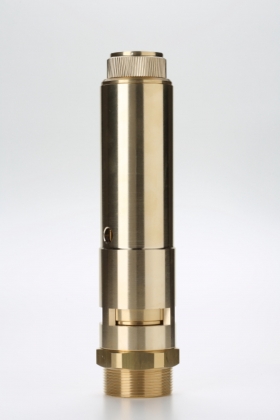
DN40 (1"1/2) - DN50 (2") | Orifice 40mm
Choosing a Nuova General Instruments safety valve means relying on a product designed and manufactured according to the highest quality and safety standards. In addition to our years of experience and continuous focus on innovation, we offer a range of dedicated services to support our customers at every stage, from product selection to after-sales assistance:
• ⚡ Fast Delivery: Standard production within 10 business days, with a Fast Track option for shipments in just 5 days.
• 📦 Flexible Lot Sizes: We provide both single valves and large batches up to 1000 units, always ensuring top quality.
• 🎨 Customization: Laser marking, colored caps for calibration identification, and removable barcode labels for simplified management.
• ✅ Third-Party Testing: Option to obtain 3.2 test certificates from prestigious organizations such as INAIL, TUV, RINA, LLOYD, DNV, and ABS.
• 📄 Online Certificates: Immediate and unlimited access to technical documentation of the valves through our dedicated portal.
• 🛠️ Product Samples: Ability to test our valves before placing regular orders, with specialized technical support.